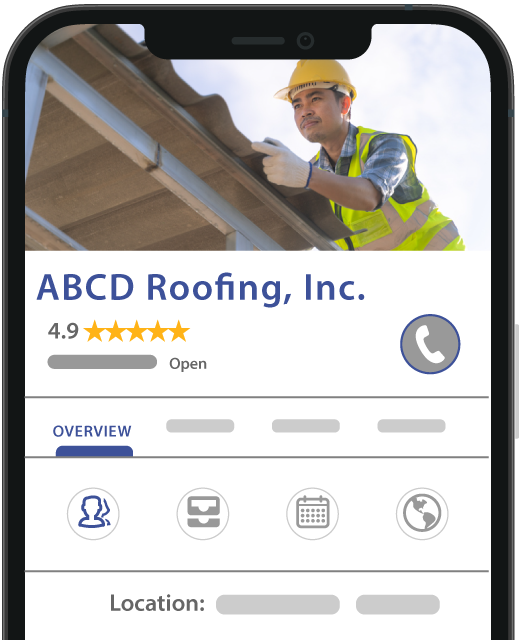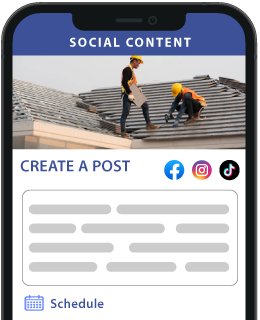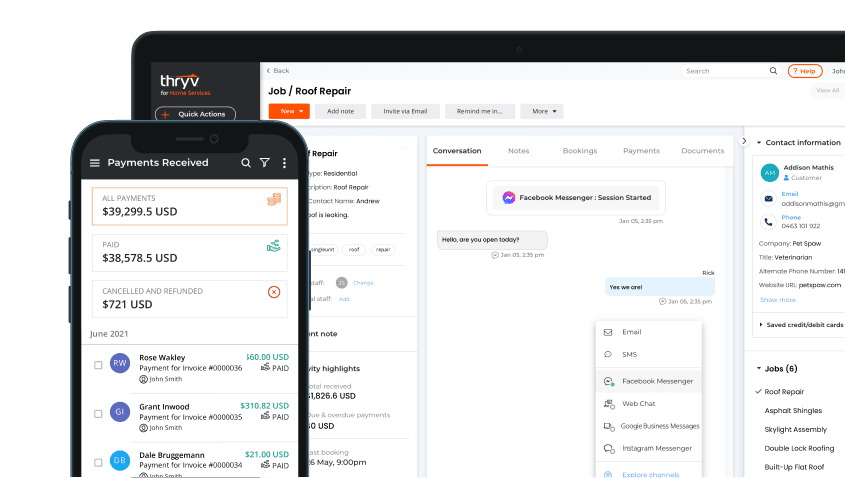If you want to turn your plumbing skills into a real career, getting a plumbing license is your first big step to take.
A license proves you’ve been trained and tested and that you know how to do the job safely and correctly. It also builds trust with customers, opens doors to better jobs, and lets you work on larger projects that require permits.
In most states, it’s also the law — you can’t legally work as a plumber without a license for plumbing.
Whether you’re looking to join a team or figuring out how to start a plumbing business, earning your plumber license is a must. It also gives you a solid foundation for adding extra skills or growing your career over time.
Common plumbing license types
Here are the most common license levels you’ll find across the U.S.:
Apprentice
This is the first step in your plumbing career. As an apprentice, you’ll work under a licensed plumber and learn through hands-on experience. You’ll help install pipes, fix systems, and assist with day-to-day tasks. You can’t work independently yet, but this role is essential for building your skills and meeting the hours required to move up.
Journeyman plumber
After completing your apprenticeship and passing the journeyman exam, you’ll become a licensed journeyman plumber. At this level, you can take on plumbing jobs on your own and should know how to install piping systems, repair fixtures, and follow building codes. Journeymen may work for a company or as independent contractors, depending on state laws.
Master plumber
Master plumbers have more training, more experience, and more responsibility. They’re allowed to design plumbing systems, pull permits for projects, supervise teams of plumbers, and run a plumbing business. To become a master plumber, you usually need several years of experience as a journeyman, along with passing a tougher exam.
Contractor license
In some states, even master plumbers need a separate plumbing business license to run a company. A contractor license allows you to hire employees, sign contracts, manage large jobs, and ensure your business complies with legal and insurance requirements. This type of license is required if you want to grow your plumbing company.
Specialty licenses
Some states offer additional licenses for plumbers who want to focus on specific areas. These may include gas piping, lawn irrigation, fire sprinkler systems, or solar water heating. Specialty licenses can help you expand your services or meet unique customer needs.
4 Steps to take to obtain your plumbing license
Each state sets its own rules for licensing, but most follow a similar process. Here’s what you can expect:
1. Finish high school or get your GED
Before you can begin working toward a plumbing license, you need to finish high school or earn a GED. This is the starting point for most trade jobs.
While in school, it helps to take math classes like algebra and geometry, which will come in handy when measuring, estimating materials, or reading blueprints. Courses in mechanical drawing, shop class, and basic science are also helpful.
2. Consider going to trade school
Trade schools and technical colleges offer short programs focused entirely on plumbing. These courses teach you how to use tools safely, read technical plans, follow plumbing codes, and understand how different systems work.
Some trade schools also offer hands-on labs that simulate real-world plumbing situations. While not always required by law, completing a trade school program can make you a stronger candidate for apprenticeship programs and help you learn the basics faster.
3. Complete a plumbing apprenticeship
Apprenticeships are one of the most important steps in becoming a licensed plumber. Most states require you to complete an apprenticeship to qualify for a plumber license.
These programs typically last between four and five years.
During this time, you’ll work side-by-side with experienced licensed plumbers on actual job sites, helping with everything from simple repairs to full system installations.
As an apprentice, you’ll be paid for your time while learning. You’ll log thousands of hours doing hands-on work and may also be required to complete classroom instruction, either through a union, employer, or trade organization.
Apprenticeships are available through union programs, non-union companies, and even some community colleges. Make sure any program you choose is recognized by your state’s licensing board.
4. Take the journeyman licensing exam
Once you’ve completed your apprenticeship and reached the minimum number of required hours, you’ll be eligible to apply for your journeyman plumber license. Most states require you to pass a written exam that covers plumbing codes, safety rules, local regulations, and best practices. Some states may also include a hands-on skills test.
Earning your journeyman license proves you can handle plumbing jobs on your own. You’ll be able to work without direct supervision, take on new types of jobs, and possibly begin subcontracting work. It’s a major step toward becoming a master plumber or running your own business someday.
5. Become a master plumber (optional)
After gaining experience as a journeyman, you may choose to take the next step and apply for a master plumber license. This isn’t required everywhere, but it’s often necessary if you want to supervise other plumbers, design plumbing systems, pull permits for projects, or start your own company.
Most states require 1,000 to 4,000 hours of journeyman-level work before you can apply. You’ll also need to pass another, more advanced exam. This test usually includes more complex technical questions and local business or contracting laws. Getting your master plumber license can open up higher-paying opportunities and allow you to grow your plumbing career into a leadership role.
What you’ll need to apply
Getting your plumbing license involves more than just completing training — it requires submitting specific documents and passing important checks. While exact requirements vary by state, most plumbing license applications ask for the following:
- Proof of experience and education: Be prepared to show detailed records of your on-the-job training and formal education. This could include apprenticeship logs, certificates from trade schools, or a letter from a licensed plumber verifying your experience.
- Background check: Most states require a background check as part of your application. This may involve fingerprinting and a review of your criminal history. A record doesn’t always disqualify you, but you may need to provide extra documentation or meet additional conditions.
- Exam scores: You must pass your state’s plumbing exam to prove you understand the plumbing code, safety rules, and industry best practices. Some states also include a practical or hands-on test in addition to a written one.
- Fees: Applying for a plumbing business license or individual plumber license usually comes with some costs. Expect to pay between $50 and $300 for applications, tests, and initial license processing. You may also have to pay renewal fees every one to three years, depending on your state.
- Continuing education: To keep your plumbing license active, many states require ongoing training. This could be a few hours each year or a certain number of hours during your renewal cycle. Courses often focus on new plumbing technologies, updated laws, and advanced safety practices.
- Insurance and endorsements: Some states also ask for proof of liability insurance for plumbing services, especially if you’re applying for a contractor or plumbing business license. Others may require a supervisor’s signature or an employer statement to confirm your training.
Make sure to read your state’s requirements carefully so your application is complete and accurate. Missing documents or unpaid fees can delay your approval.
State-by-state licensing
Every state has its own process for plumbing licenses. Some manage it at the state level, while others leave it to counties or cities. Always check the official website in your state for the most accurate requirements and to apply for your plumber license.
Here’s a list of the official licensing authorities for each state:
How to find a plumbing apprenticeship
A good apprenticeship is key to getting your license for plumbing. Here are a few ways to find one:
Union programs
Organizations like the United Association of Plumbers and Pipefitters offer formal apprenticeship programs. These programs provide classroom education, on-the-job training, and regular pay increases as you gain experience. Union apprenticeships are highly structured and often include health benefits and job placement assistance after you graduate.
Non-union companies
Many private plumbing companies hire apprentices directly. These positions can be competitive, so it helps to have some trade school experience. Check company websites, reach out to HR departments, or network with local plumbers to learn about openings.
Trade schools
Some vocational schools or community colleges offer pre-apprenticeship training and can help place students in apprenticeships after graduation. These programs may partner with local unions or contractors to offer job leads and additional support.
Job boards and websites
Try online resources like Apprenticeship.gov, Indeed, Monster, or Craigslist. Many employers post apprentice openings on these platforms, especially during busy seasons.
State workforce agencies
Most states have workforce development departments that keep lists of approved apprenticeship programs. They may also help you build a resume, practice for interviews, or access financial aid while training.
Make sure that whichever apprenticeship you pursue is officially recognized by your state or local plumbing board. Only approved programs will count toward your required hours for a plumbing certification or plumber license.
Growing your plumbing business with Thryv
Once you’ve got your license, you may eventually want to become your own boss and start your own plumbing company. That’s where Thryv® can help. Thryv’s comprehensive software is built for small business owners and plumbing pros. By combining multiple software solutions in one place, Thryv helps you:
- Market: Get found online through listings management, SEO tools, and social media scheduling.
- Sell: Capture and convert new leads with automated follow-ups, real-time lead tracking, and a professional CRM.
- Grow: Manage your day-to-day with online booking, invoicing, payment processing, and customer communication tools.
When you need help turning your plumbing license into a thriving business, Thryv’s software for plumbing businesses makes it easy to get organized, look professional, and stay ahead of the competition.
Additional resources
Plumbing Job Cost Calculator: Job Price Calculator for Plumbers
Free Tools for Plumbing Business Owners
14 Plumbing Marketing Ideas To Help Grow Your Business



